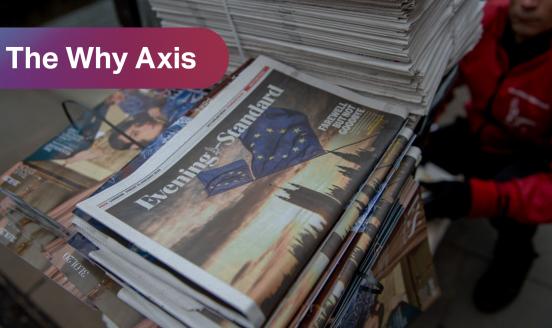An agenda for the London Summit
In this column, Nicolas Véron looks at what the London Summit of the G20 on 2 April can and cannot achieve. He argues that the G20 should concentrate on governance issues, the area where it is best equipped to add real value. Given the circumstances, reform of the International Monetary Fund should come on top of on its agenda.
The London Summit on 2 April will be the second held at heads-of-state-and-government level by the G20. This debating forum carries significant legitimacy as it represents twothirds of the world’s population and nine-tenths of its economic activity.
The previous session on 15 November in Washington DC was just a warm-up. The G20 countries must now face up to a wholly different crisis. Woe has spread far beyond the financial sector.
It presently involves a serious recession, a collapse in global trade, a sharp rise in unemployment, and the macroeconomic destabilisation of several countries, some of whom are members of the European Union.
Moreover, it will be Barack Obama’s first big international meeting. Ineluctably, markets will be hanging on the results of the discussion.
The G20 cannot afford to fail. But what sort of success can it hope for? The G20 has limited or no traction on several of the major questions of the day.
Fiscal policy cannot be coordinated in such a large and disparate group. The same applies to exchange-rate policy, which would require a smaller and more focused forum. Bank rescue operations remain a national business, or at most a regional one in the case of the EU.
On these pressing matters the G20 can do little more than urging and encouraging. Rhetoric can help, including a renewed call not to fall into the trap of protectionism. But it brings you only so far. The London summit should therefore focus on longer-term issues, such as institutional architecture and governance.
In spite of the urgency of the moment, these are crucial. The crisis will be lengthy, and the ship must be repaired as it weathers the storm.
The G20 must push to restructure the current system of global institutions, to make it relevant again in a world which has become more multipolar.
The first of these challenges is IMF reform. It is also a short-term imperative, because the Fund’s resources are insufficient to address the gathering hurricane.
For the major emerging countries to feel empowered in the Fund, the US should renounce its right of veto, and the Europeans should simultaneously give up their current overrepresentation.
If these gestures are announced on 2 April, China and others could quickly boost the Fund’s resources. Such an increase will be vital for the IMF to be strong enough to intervene anywhere it needs to, including in Europe.
The G20 should also accelerate the reform of other institutions. The Financial Stability Forum, but also the Basel committee on banking supervision, both crucial to debates about pro-cyclical prudential policies, should open themselves to China in order to buttress their standing in a world where three of the five biggest banks globally by market value are headquartered in Beijing.
On accounting, the G20 should endorse the reform of IFRS governance announced in January, in spite of all its flaws. It should also direct its attention, more than has been the case until now, on the inconsistencies in implementation of the international standards.
Moreover, the G20 should launch a medium-term debate on the supervision of globally integrated financial players, such as rating agencies, the main audit networks and the big investment banks.
Such a focus on governance issues would be better suited to the political nature of the G20 than the details of financial regulation, which formed the bulk of the November summit declaration.
Finally, the G20 could usefully advance on tax havens, a matter of fairness and a precondition for wide-ranging tax increases, including on the better-off, which will likely be needed at some point in many countries.
Would such an agenda satisfy the marketplace? Probably, because markets want to see concrete steps forwards, even modest ones, rather than rhetorical flights about saving the world or remaking capitalism.
Markets are resigned to a life dependent on politicians but do not hold these in high esteem. This is why the G20 must be modest enough to target its action where it can add real value. If it manages to do so, it will emerge as a durable forum for coordination of global economic and financial institutions, whose number and role may grow considerably with the crisis.
If not, the G20 may soon be but a vague memory of a fleeting phase in the collapse of globalisation.
Nicolas Véron is a research fellow at Bruegel.
Andrew Fielding’s help in translating from the French is gratefully acknowledged.
This comment was originally published in French in La Tribune.



